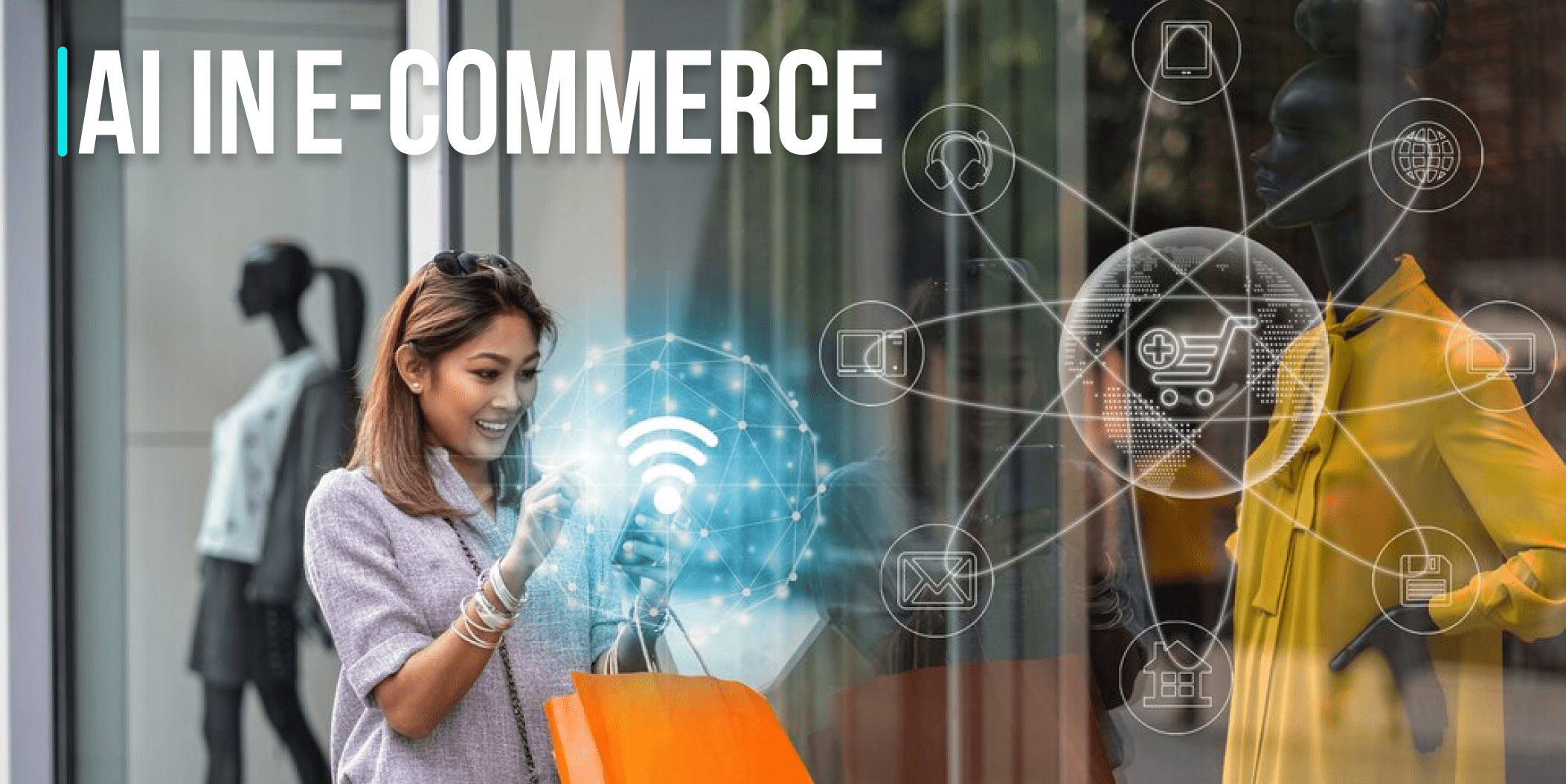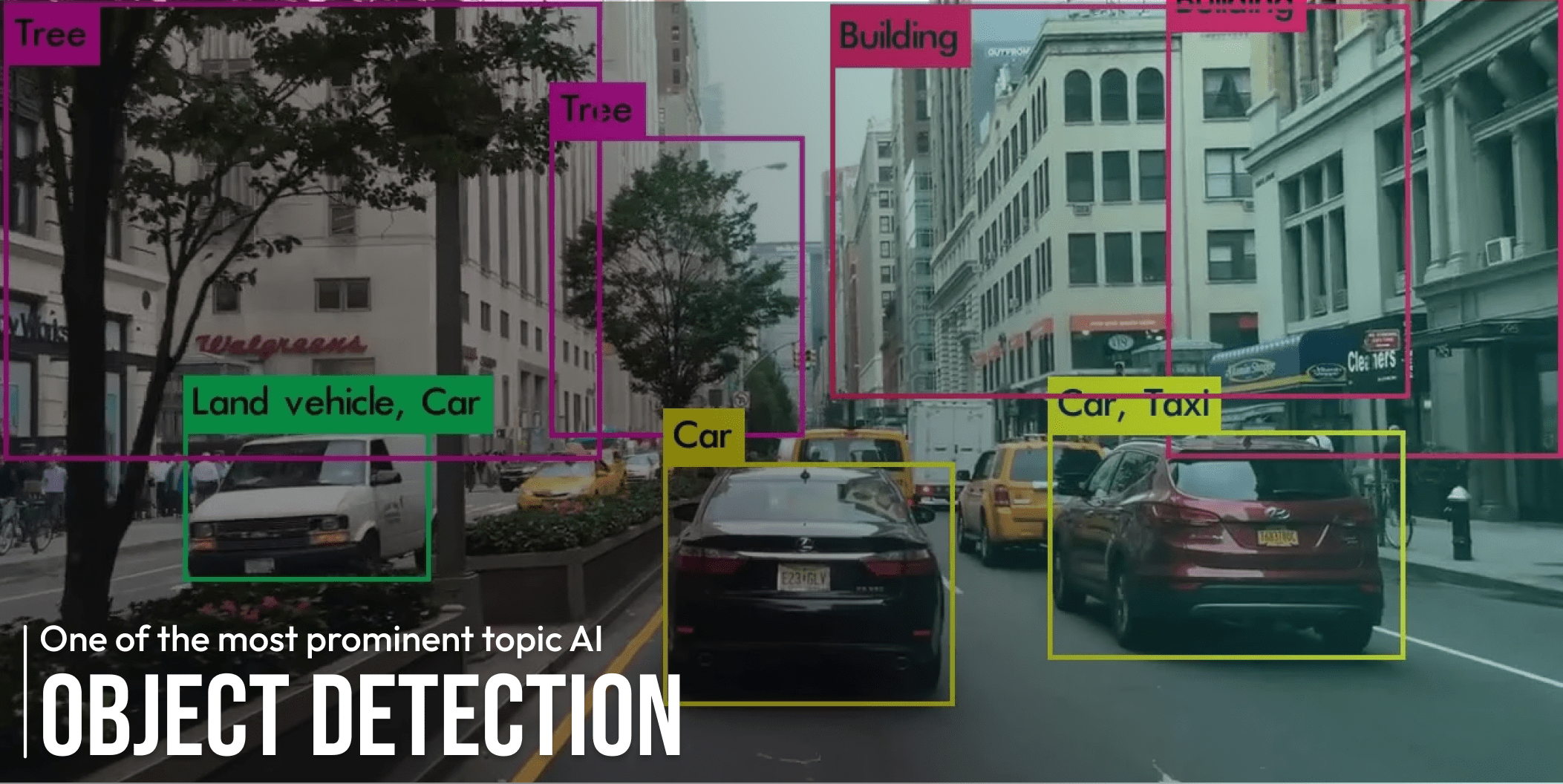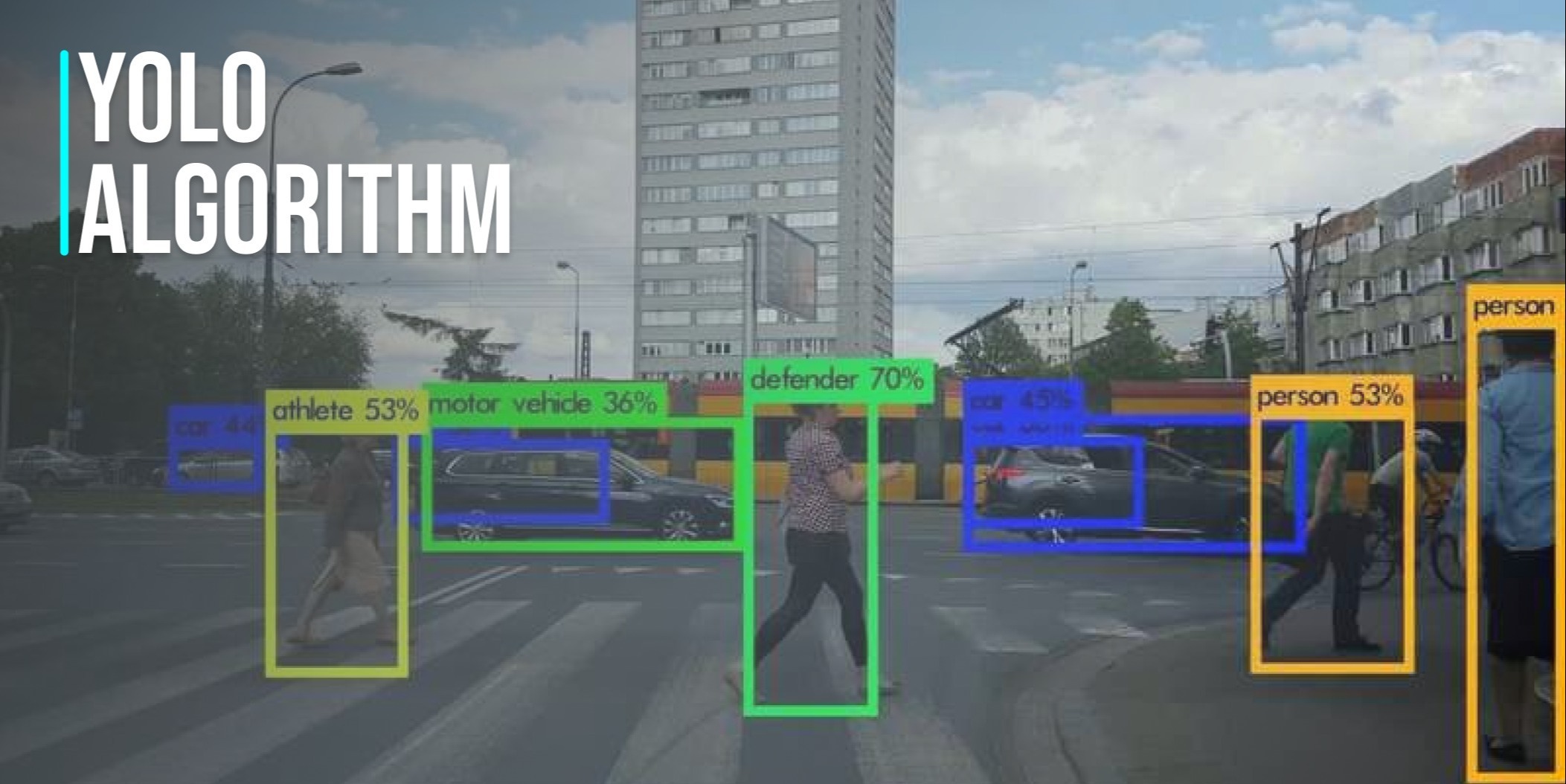Introduction
AI is not just a buzzword now; the boom of AI can be seen in every area of our lives, whether it’s writing emails or automating social media posting. The use of AI is now seen everywhere. According to IBM In 2022, 35% of companies used artificial intelligence to support their businesses, a 4% increase from 2021.
In the digital age, e-commerce has become an integral part of our lives, offering convenience and accessibility like never before. However, the landscape of online shopping is evolving, thanks to the infusion of artificial intelligence. The transformative force of AI is reshaping the eCommerce industry. AI and eCommerce provide businesses with innovative solutions that enhance the shopping experience for customers worldwide.
If you’re reading this, you’re probably looking for ways AI can improve eCommerce and what are the benefits of using AI in the eCommerce industry. This article talks about how Artificial Intelliegence can help the eCommerce industry and why it’s a big deal for both businesses and shoppers.
So without further delay let’s get started
AI In eCommerce
In today’s business landscape, having an eCommerce platform is essential for companies looking to stay competitive and boost their revenue. Furthermore, cutting-edge technologies, with a particular emphasis on AI, are reshaping the way businesses conduct their online operations, leading to improved sales and greater efficiency. This transformation is clearly evident as numerous traditional businesses are now making their way into eCommerce.
In the ever-changing world of online shopping, AI is a game-changer, reshaping business operations. Let’s explore how e-commerce giants like Amazon, Alibaba, eBay and others leverage AI to gain a competitive edge and achieve success.
Amazon
Amazon is a pioneer in AI-powered eCommerce giant whichuses AI algorithms that look at what customers are interested in or bought before, so they can suggest things that might be interesting. In certain Amazon stores, customers can simply pick out what they want and leave; there’s no need to wait in line to pay, and AI charges their bill automatically. Studies have shown that over 50% of its sales come from AI-powered recommendations
ebay
eBay uses smart search to help users search for products and relevant items by searching through text, image, or voice. Its AI-based virtual assistants understand those words and pictures to show the best possible search results and items to their customers, increasing sales and boosting revenue.
Alibaba
Alibaba leverages AI-powered virtual assistants and chatbots, which efficiently manage more than 90% of customer inquiries. These tools not only assist customers in finding relevant products but also offer tailored suggestions to customers, enhancing their shopping experience and elevating customer service.
Benefits of using artificial intelligence in eCommerce
Using AI in your online store can help customers find what they want and match prices. Here’s why using artificial intelligence in eCommerce is a good idea.
Boost customer retention
Online shops employ personalized recommendations, chatbots, and virtual assistants to streamline the shopping experience. When customers receive assistance and view items aligned with their preferences, it boosts the likelihood of purchase and return, while also fostering strong customer relationships. These features recognize preferences and address concerns, ultimately enhancing customer loyalty and increasing retention.
Increase sales and revenue
AI and eCommerce go hand in hand, It helps businesses understand customer behavior and buying patterns. With this knowledge, they can suggest complementary products during the shopping journey, increasing average order values and overall sales. It also helps e-commerce companies with advertising by gathering and studying real-time data about how people shop online and what they’ve bought before. This makes advertising smarter and cheaper.
Reduce operational cost
Using AI in eCommerce for inventory management and predictive analytics is a game-changer. It cuts costs and makes things run smoother. Companies can make sure they have just the right amount of products, which saves money on storage and makes sure they don’t run out of popular items. This means they can use their resources better, leading to more profits in the long term.
Fraud Detection
When it comes to trust, customers may support you if you ensure a proper security setup for your brand. There are multiple fake transactions, and spamming attacks are being made by hackers every day.
AI can spot fake transactions by looking at different details like buying history, location, and weird buying patterns. This doesn’t just save businesses from losing money; it also makes customers feel more secure and trust the system.
Applications of AI in eCommerce
Smart and Visual Search
E-commerce websites now use AI to allow customers to search for products using images. This innovative feature makes it easier for users to find exactly what they’re looking for. For example, if a customer takes a picture of a unique lamp in a friend’s house, the AI system can find similar products in the store.
Voice commerce and virtual assistants
AI-powered chatbots provide real-time customer support, answer queries, and guide customers through their purchase journey. These bots use natural language processing and machine learning to understand customer inquiries, improving overall user satisfaction. We’re all well aware of Google Assistant, Amazon’s Alexa, and Apple’s Siri. They can help customers track orders, return products, or address any issues promptly.
Virtual assistants perform a wide range of tasks, providing users with quick access to information and assistance. Voice commerce, a technology enabling voice-based purchases and searches, has seen significant growth due to its speed and convenience, despite being around since the 1960s.
Pricing Optimization
In this ever-evolving competitive landscape, setting the right pricing for your product is crucial there are various factors to look at like: competitor pricing, cost of goods sold (CoGS), shipping costs, and client demand.
It will take your time and resources as well, but most importantly, there is a chance to have human errors in setting the right pricing.
But don’t worry, AI is the savior here!
Yes, AI helps businesses set competitive prices. It can analyze competitor prices, market demand, and internal factors to adjust prices in real-time. This ensures that products are attractively priced, leading to increased sales and profitability.
AI analyzes market conditions and competitor prices to adjust product prices in real-time. This allows businesses to remain competitive and adapt to market fluctuations. For example, the AI algorithm can increase the price when the competitors’ stocks are low and vice versa
Automated Inventory Management System
Managing inventory is not a tough task if you have a small eCommerce store but what if you have a big store like amazon. It could be difficult to keep a record and manage inventory in that case.
AI optimizes inventory levels through predictive analytics. By analyzing historical data, market trends, and even external factors like weather, AI can predict demand more accurately.
By adopting AI in inventory management, e-commerce businesses can streamline operations, increase customer satisfaction, reduce costs, and enhance overall efficiency. Moreover, AI-powered robots reduce human workload and boost logistics efficiency.
Enhance personalization for customer
Personalization is not new to the world of shopping. It tailors the shopping experience to individual customer needs, preferences, and tastes, addressing their pain points.
According to a study, 80% of shoppers are likely to buy from brands that provide customized shopping experiences.
AI algorithms analyze user data, such as browsing and purchase history, to craft personalized shopping experiences. By suggesting products based on individual preferences, they boost customer engagement and foster repeat business. For example, if a customer frequently buys specific items, the AI system can recommend related products and accessories.
AI-powered chatbots and virtual Assistants
In the eCommerce sector, chatbots rank as a widely adopted AI application. In 2022, chatbots were actively utilized by 58% of B2B and 42% of B2C companies. Furthermore, 88% of online shoppers engaged in at least one chatbot conversation, with 69% expressing satisfaction with their most recent interaction.
AI-driven chatbots deliver immediate customer support, address inquiries, and assist customers during their buying process. These chatbots employ natural language processing and machine learning to comprehend customer queries, ultimately enhancing user satisfaction. Additionally, they can facilitate order tracking, product returns, and swift issue resolution for customers.
How you can use AI in for your e-commerce business
While new and exciting technologies may be tempting, it’s essential to create a roadmap before diving into implementation. This ensures you don’t waste time and money on unsuccessful beginnings.
Create a strategy
If you are an individual, a small store, or a big eCommerce giant it is important to have a strategy before making any decision. Start by identifying your goals, and specific ways in which AI can help you, whether it is for automating repetitive tasks, providing virtual assistance, or personalizing shopping experiences, Once your goals are clear, you can select an AI tool.
Look for already existing solutions
AI can help you with personalized shopping experiences, task automation, and enhancing the customer experience, among other things. You can create custom AI tools to meet your eCommerce business needs.
You can also create a customized tool to meet the needs and goals to gain a competitive edge in your eCommerce business.
Consult a specific vendor
Even if you love AI from afar, it’s smart to get expert help. Bring in a special team to help plan your AI strategy. They can also help bring your first important AI project to life.
You should consult with a specialized AI vendor to help you define your goals for designing AI-powered tools for your niche.
After your team creates something you’re sure about, it’s time to make the complete solution. It might need a few tries to work just right, but as you get used to using AI, you’ll see more and more benefits from your projects.
At tezeract, we have built a variety of AI-powered tools for various industries like formole – A virtual soccer coach, SWI – A sentiment analysis tool, Voltox – A biometric and KYC tool, and many more.
We’re experts in building ai-powered solutions and products providing AI services from all around the world to help business improve their workflows, automate their business and save their TIME, MONEY, and EFFORT.
If you want to build a personalized tool for your eCommerce needs schedule a free consultation now we will provide the best solutions to you.
Conclusion
In this article, you learned the role of AI in the eCommerce industry. We also explored different AI initiatives by major companies to better understand how the technology works in various use cases.
In conclusion, Artificial Intelligence is revolutionizing the e-commerce industry in ways we could only dream of a few years ago. It offers a win-win situation, improving the shopping experience for customers while boosting profitability for businesses. As e-commerce continues to evolve, integrating AI is not just an option; it’s a necessity to stay competitive in the digital marketplace.
Businesses that embrace AI will thrive in this dynamic industry, enhancing their customers’ online shopping experience while driving growth and efficiency in the process. The future of AI and eCommerce is undeniably intertwined with the power of Artificial Intelligence. Embracing this technology is the key to staying ahead in the competitive world of online retail.























